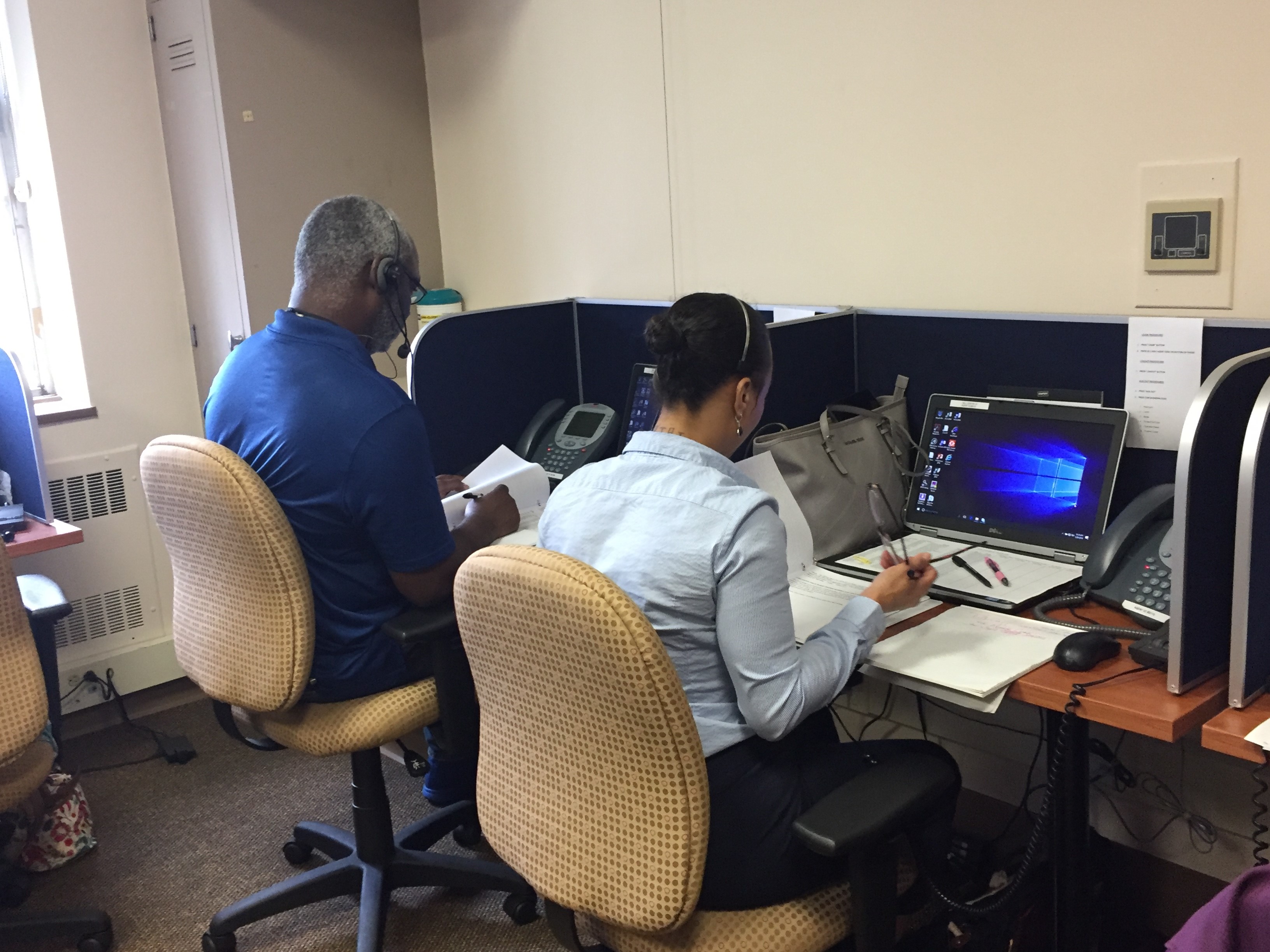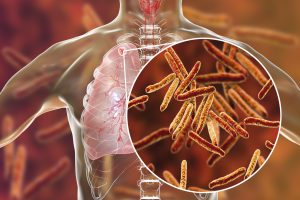DPH Issues Reminder of Open Testing Dates for TB; Announces Call Center to Close Friday, June 1, 2018
Division of Public Health | Newsroom | Date Posted: Friday, June 1, 2018
Division of Public Health | Newsroom | Date Posted: Friday, June 1, 2018


DPH will offer three open testing days at its clinic at the Hudson State Service Center, 501 Ogletown Road, Newark, as the overwhelming majority of former staff and residents live in New Castle County. The open testing dates are June 4-6, 2018, from 8:30 a.m. to 11:30 a.m. and 1 p.m. to 3:30 p.m. Testing is for walk-ins only on these days.
DPH opened a call center on Tuesday, May 29, 2018, to follow up with individuals who had been sent a letter and answer any questions, as well as to field questions from the public. As the number of incoming calls has decreased significantly since the opening, DPH is announcing that the call center will cease operations at 4:00 p.m., Friday, June 1, 2018. A recorded message on the call center line will instruct callers to contact the DPH TB Elimination Program with any questions at 302-744-1050.
Former staff and residents who cannot come to one of the open testing dates in Newark, or who live in Kent or Sussex counties and need an appointment are also asked to contact the TB Program and provide their contact information to staff. Residents in New Castle County will receive a call back from Hudson State Service Center staff to schedule an appointment. In Kent County, staff from Williams State Service Center in Dover will return calls to schedule appointments there, and in Sussex County, Adams State Service Center staff in Georgetown will return calls to schedule appointments there.
“We continue to actively encourage those who may have been exposed to tuberculosis to get tested as TB infection is treatable with medication that can prevent it from turning into full-blown, spreadable TB disease,” said DPH Director Dr. Karyl Rattay. “I would also like to thank our DPH call center operators who generously volunteered their time to assist us with our response efforts for their service.”
The individual considered to be the source of the exposure was not diagnosed with active TB until April 2018 when the person sought medical treatment for feeling extremely ill. TB is a reportable disease in Delaware and the health care facility that made the diagnosis reported it to DPH as required.
TB is a bacterium that can be inhaled into the lungs of others when a nearby person with the active disease coughs, sneezes, sings or laughs. People with TB disease are most likely to spread the disease to people they spend time with every day, such as family or other household members, close friends, and coworkers. Signs and symptoms of TB may include a progressively worsening cough that lasts more than two weeks, fatigue, weakness, weight loss, night sweats, fever, chills and chest pain. TB can affect any bodily organ but is infectious to others only when it occurs in the lungs or larynx (voice box).
Only people with TB symptoms can spread the disease. TB is not spread by casual or brief contact such as shaking hands, touching, sharing food or drink, utensils, bed linens or toilet seats, sharing toothbrushes or saliva from kissing.
TB disease is treatable and curable, usually by taking several medications for six to nine months. About 5 percent to 10 percent of persons infected with TB if untreated will develop the disease at some time in their lives; most within the first two years after the infection occurs.
In most people who breathe in TB bacteria and become infected, the body is able to fight the bacteria to stop them from growing. The bacteria become inactive, but they remain alive in the body and can become active later. This is called latent TB infection. People with latent TB infection cannot spread TB bacteria to others. People who have latent TB infection can be treated to prevent TB disease from developing.
For more information on tuberculosis, visit the Centers for Disease Control and Prevention website at: https://www.cdc.gov/tb/default.htm. For more information on the DPH Tuberculosis Elimination Program, visit http://dhss.delaware.gov/dhss/dph/dpc/tbservices.html.
A person who is deaf, hard-of-hearing, deaf-blind or speech-disabled can call the DPH phone number above by using TTY services. Dial 7-1-1 or 800-232-5460 to type your conversation to a relay operator, who reads your conversation to a hearing person at DPH. The relay operator types the hearing person’s spoken words back to the TTY user. To learn more about TTY availability in Delaware, visit http://delawarerelay.com.
Delaware Health and Social Services is committed to improving the quality of the lives of Delaware’s citizens by promoting health and well-being, fostering self-sufficiency, and protecting vulnerable populations. DPH, a division of DHSS, urges Delawareans to make healthier choices with the 5-2-1 Almost None campaign: eat 5 or more fruits and vegetables each day, have no more than 2 hours of recreational screen time each day (includes TV, computer, gaming), get 1 or more hours of physical activity each day, and drink almost no sugary beverages.
Keep up to date by receiving a daily digest email, around noon, of current news release posts from state agencies on news.delaware.gov.
Here you can subscribe to future news updates.
Division of Public Health | Newsroom | Date Posted: Friday, June 1, 2018


DPH will offer three open testing days at its clinic at the Hudson State Service Center, 501 Ogletown Road, Newark, as the overwhelming majority of former staff and residents live in New Castle County. The open testing dates are June 4-6, 2018, from 8:30 a.m. to 11:30 a.m. and 1 p.m. to 3:30 p.m. Testing is for walk-ins only on these days.
DPH opened a call center on Tuesday, May 29, 2018, to follow up with individuals who had been sent a letter and answer any questions, as well as to field questions from the public. As the number of incoming calls has decreased significantly since the opening, DPH is announcing that the call center will cease operations at 4:00 p.m., Friday, June 1, 2018. A recorded message on the call center line will instruct callers to contact the DPH TB Elimination Program with any questions at 302-744-1050.
Former staff and residents who cannot come to one of the open testing dates in Newark, or who live in Kent or Sussex counties and need an appointment are also asked to contact the TB Program and provide their contact information to staff. Residents in New Castle County will receive a call back from Hudson State Service Center staff to schedule an appointment. In Kent County, staff from Williams State Service Center in Dover will return calls to schedule appointments there, and in Sussex County, Adams State Service Center staff in Georgetown will return calls to schedule appointments there.
“We continue to actively encourage those who may have been exposed to tuberculosis to get tested as TB infection is treatable with medication that can prevent it from turning into full-blown, spreadable TB disease,” said DPH Director Dr. Karyl Rattay. “I would also like to thank our DPH call center operators who generously volunteered their time to assist us with our response efforts for their service.”
The individual considered to be the source of the exposure was not diagnosed with active TB until April 2018 when the person sought medical treatment for feeling extremely ill. TB is a reportable disease in Delaware and the health care facility that made the diagnosis reported it to DPH as required.
TB is a bacterium that can be inhaled into the lungs of others when a nearby person with the active disease coughs, sneezes, sings or laughs. People with TB disease are most likely to spread the disease to people they spend time with every day, such as family or other household members, close friends, and coworkers. Signs and symptoms of TB may include a progressively worsening cough that lasts more than two weeks, fatigue, weakness, weight loss, night sweats, fever, chills and chest pain. TB can affect any bodily organ but is infectious to others only when it occurs in the lungs or larynx (voice box).
Only people with TB symptoms can spread the disease. TB is not spread by casual or brief contact such as shaking hands, touching, sharing food or drink, utensils, bed linens or toilet seats, sharing toothbrushes or saliva from kissing.
TB disease is treatable and curable, usually by taking several medications for six to nine months. About 5 percent to 10 percent of persons infected with TB if untreated will develop the disease at some time in their lives; most within the first two years after the infection occurs.
In most people who breathe in TB bacteria and become infected, the body is able to fight the bacteria to stop them from growing. The bacteria become inactive, but they remain alive in the body and can become active later. This is called latent TB infection. People with latent TB infection cannot spread TB bacteria to others. People who have latent TB infection can be treated to prevent TB disease from developing.
For more information on tuberculosis, visit the Centers for Disease Control and Prevention website at: https://www.cdc.gov/tb/default.htm. For more information on the DPH Tuberculosis Elimination Program, visit http://dhss.delaware.gov/dhss/dph/dpc/tbservices.html.
A person who is deaf, hard-of-hearing, deaf-blind or speech-disabled can call the DPH phone number above by using TTY services. Dial 7-1-1 or 800-232-5460 to type your conversation to a relay operator, who reads your conversation to a hearing person at DPH. The relay operator types the hearing person’s spoken words back to the TTY user. To learn more about TTY availability in Delaware, visit http://delawarerelay.com.
Delaware Health and Social Services is committed to improving the quality of the lives of Delaware’s citizens by promoting health and well-being, fostering self-sufficiency, and protecting vulnerable populations. DPH, a division of DHSS, urges Delawareans to make healthier choices with the 5-2-1 Almost None campaign: eat 5 or more fruits and vegetables each day, have no more than 2 hours of recreational screen time each day (includes TV, computer, gaming), get 1 or more hours of physical activity each day, and drink almost no sugary beverages.
Keep up to date by receiving a daily digest email, around noon, of current news release posts from state agencies on news.delaware.gov.
Here you can subscribe to future news updates.